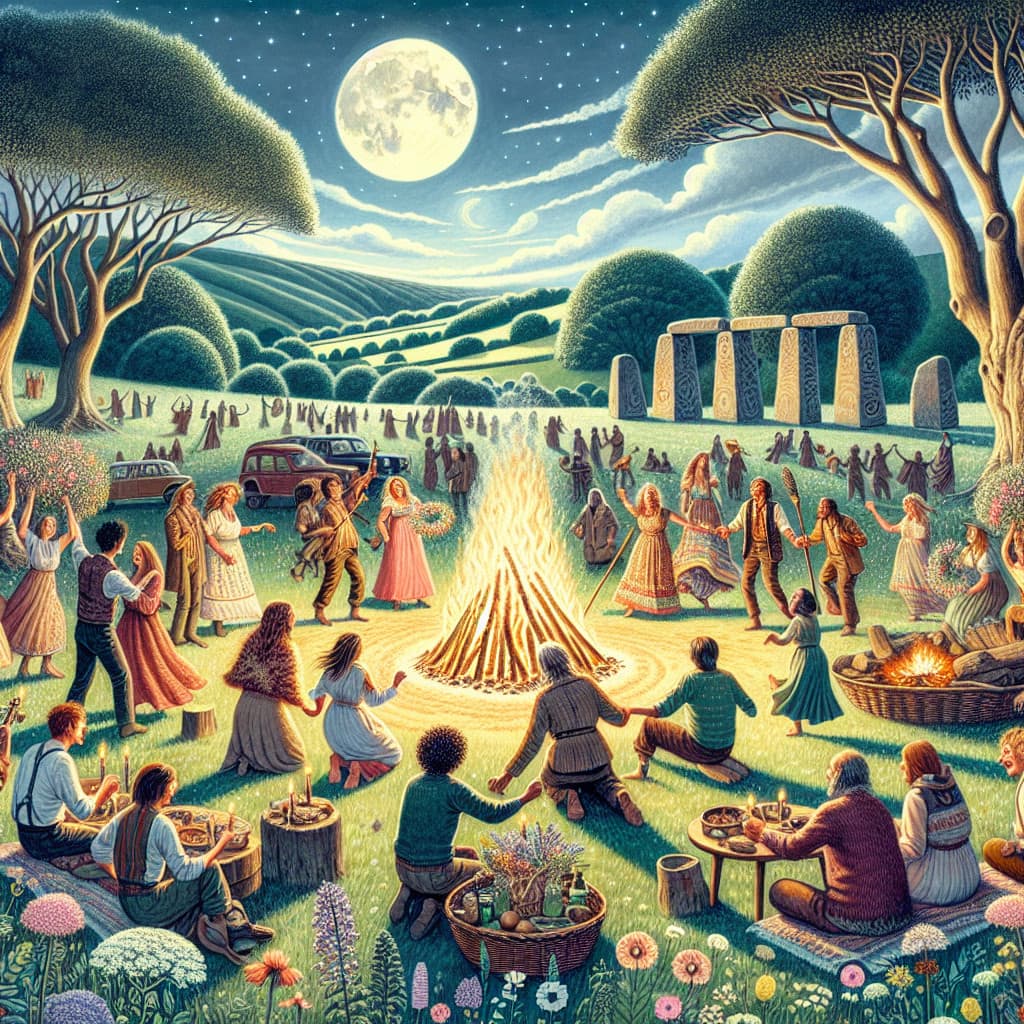The UK is home to a variety of exciting and unique pagan festivals that offer a unique and spiritual experience for those who attend. From traditional solstice celebrations to modernized festivals and everything in between, these events have been a part of the British culture for hundreds of years and continue to thrive in the present day. In this article, we will explore some of the more popular pagan festivals in the UK and discuss their significance and the activities they provide. We will also discuss the importance of respecting and protecting these age-old traditions.
The United Kingdom is home to a variety of Pagan festivals, including Beltane, Yule, and Samhain. Whether you’re a Pagan looking to attend a festival or just curious about Paganism in the UK, here’s what you should know about these festivals and how to get involved.
What Are Pagan Festivals?
Pagan festivals are events that celebrate Pagan beliefs, which are based on a reverence for nature and the cycles of the natural world. Traditionally, these festivals are held at specific times of the year in order to mark seasonal changes and honor the gods and goddesses associated with them.
Traditional UK Pagan Festivals
The four traditional UK Pagan festivals are Beltane, Yule, Imbolc, and Samhain. These are commonly known as the Wheel of the Year festivals and are celebrated by Pagans around the world.
Beltane
Beltane is a celebration of fertility and is usually held on the 1st of May. It is a time for honoring the gods and goddesses associated with fertility and growth. During Beltane, many Pagans will light a bonfire and hold rituals to encourage new growth and abundance.
Yule
Yule is the winter solstice festival, usually celebrated on the 21st of December. It is a time for celebrating the return of the sun and honoring the gods and goddesses associated with light and warmth. Many Pagans will decorate their homes with evergreens and holly, light candles, and exchange gifts to mark the occasion.
Imbolc
Imbolc is usually held on the 2nd of February and is a celebration of the returning light of spring. It is a time for honoring the goddess Brigid, who is associated with fire, healing, and creativity. Many Pagans will light candles, perform rituals, and make offerings to Brigid to celebrate the beginning of spring.
Samhain
Samhain is a festival of the dead, usually held on the 31st of October. It is a time for Pagans to remember and honor their ancestors and to reflect on the cycle of life and death. Many Pagans will light candles, perform rituals, and exchange gifts to celebrate the occasion.
Finding UK Pagan Festivals
Pagan festivals are held around the UK, though their exact dates and locations can vary from year to year. The best way to find Pagan festivals in your area is to search online or ask other Pagans in your local area.
Attending UK Pagan Festivals
If you’re attending a Pagan festival for the first time, it’s a good idea to do some research beforehand. You should make sure you understand the etiquette of the event and dress appropriately. It’s also a good idea to bring food and water, as some festivals may not provide these.
Conclusion
Pagan festivals are an important part of the Pagan faith and culture in the UK. Whether you’re a Pagan looking to attend a festival or just curious about Paganism in the UK, these festivals are a great way to explore the beliefs and customs of the Pagan community.
UK Pagan Festivals are a great way to celebrate the changing of the seasons, reconnect with nature and explore spiritual practice. They offer an opportunity to come together with like-minded people and share in the joy of this ancient tradition. By attending these festivals, we can learn more about our cultural heritage and deepen our understanding of the natural world. In doing so, we can gain a greater appreciation for the beauty and power of nature, and the importance of respecting and protecting it. By embracing the Pagan tradition, we can create a brighter future for ourselves and the planet. Ultimately, UK Pagan Festivals are a celebration of life, nature and spirituality, and an important reminder of our interconnectedness with the natural world.





